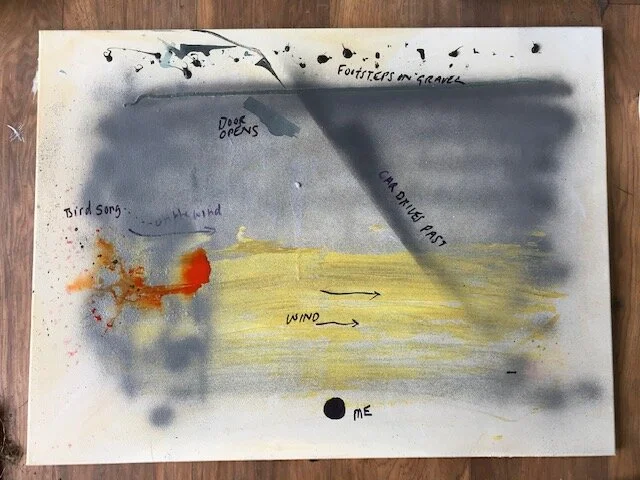Disruptions: Archived
ONLINE POETRY ARCHIVE
As part of this series, poet Nisha Ramayya was invited to design and lead Disruptions, a series of free writing workshops. Initially, these took place at John Hansard Gallery; later, they migrated to the gallery’s online space. As writer-in-residence for the exhibition, Ramayya was also commissioned to produce a textual response of her own. We are delighted to present here a showcase of the work of the Disruptions writing group, along with Ramayya’s poem, “Now Let’s Take a Listening Walk” and her own vocalized response to Many voices, all of them loved.
You can learn more about the workshop participants and their work below:
Owen Baxter-Jones
What sound do you most fondly remember/most enjoy? The waves of the sea crashing against a stony beach – to me it sounds like breathing, like the ocean is the world’s lung, and it’s so so calming and humbling. What do you think poetry can do for the world right now? I think it can be such a powerful force for connection in so many ways – between people (especially important now when we’re apart and some of us are alone) as well as between ideas, a way to reimagine our relationship with the world and its people, and to translate our feelings into thoughts into words.
View Owen’s work: May This Emptiness (film) / May This Emptiness (document)
Amanda Kent
What sound do you most fondly remember/most enjoy? Waves breaking near the shoreline. What do you think poetry can do for the world right now? Provide ways of looking at others and us in a new light.
View Amanda’s work: Sound Map
Damian O’Vitch
Damian performs and runs live literature events and workshops and is half of Panda-monium, Hampshire’s leading panda-harmonium duo. What sound do you most fondly remember/most enjoy? My wife’s laugh. What do you think poetry can do for the world right now? Entering the Idiocene, all Poetry can do is distract us with trinkets of Joy while holding a mirror to the billowing absurdity of Now.
View Damian’s work: Unvoiced, Your Mouth Becomes A Theatre Of How Words Feel
Dave Hubble
What sound do you most fondly remember/most enjoy? The opening chord and roar at the first gig I ever went to (Iron Maiden back in the 80s). What do you think poetry can do for the world right now? Give voices to the voiceless, be that other people, other species or the world around us.
View Dave’s work: Disruptions poems / Sonic Environment 1
Joan McGavin
Joan is just finishing a PhD in Creative Writing (Poetry) at the University of Southampton.
What sound do you most fondly remember/most enjoy? The washing machine starting – that means writing can now happen! What do you think poetry can do for the world right now? Poetry currently fulfils, with bells on, its traditional roles: providing music, provoking thought, creating comfort, stretching minds of listener and maker alike.
View Joan’s work: Exeunt / To be played on a continuous loop
We are very grateful to Nisha Ramayya for her extraordinary contribution to this project, and to all who participated with such generosity and enthusiasm in the Interruptions/Disruptions events. Heartfelt thanks to John Hansard Gallery, and especially to Communities Curator, Dianna Djokey, whose commitment to Interruptions/Disruptions enabled this programme to be realised against the odds.
Interruptions/Disruptions was a public programme of events and workshops devised by the University of Southampton’s Eleanor K Jones, Priti Mishra and Sarah Hayden as a polyvocal response to the themes animating Many voices, all of them loved. Interruptions/Disruptions was funded by the Public Engagement with Research unit at the University of Southampton.


